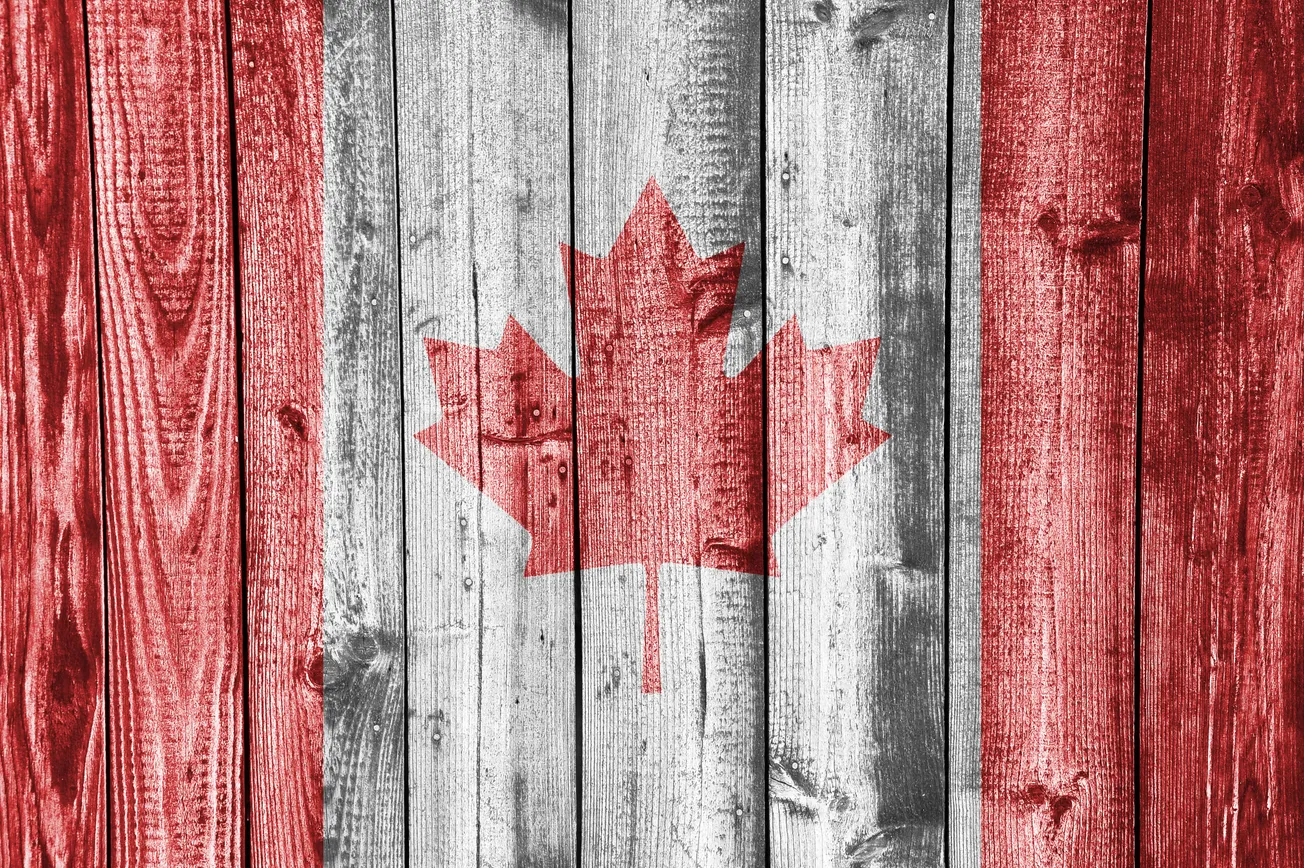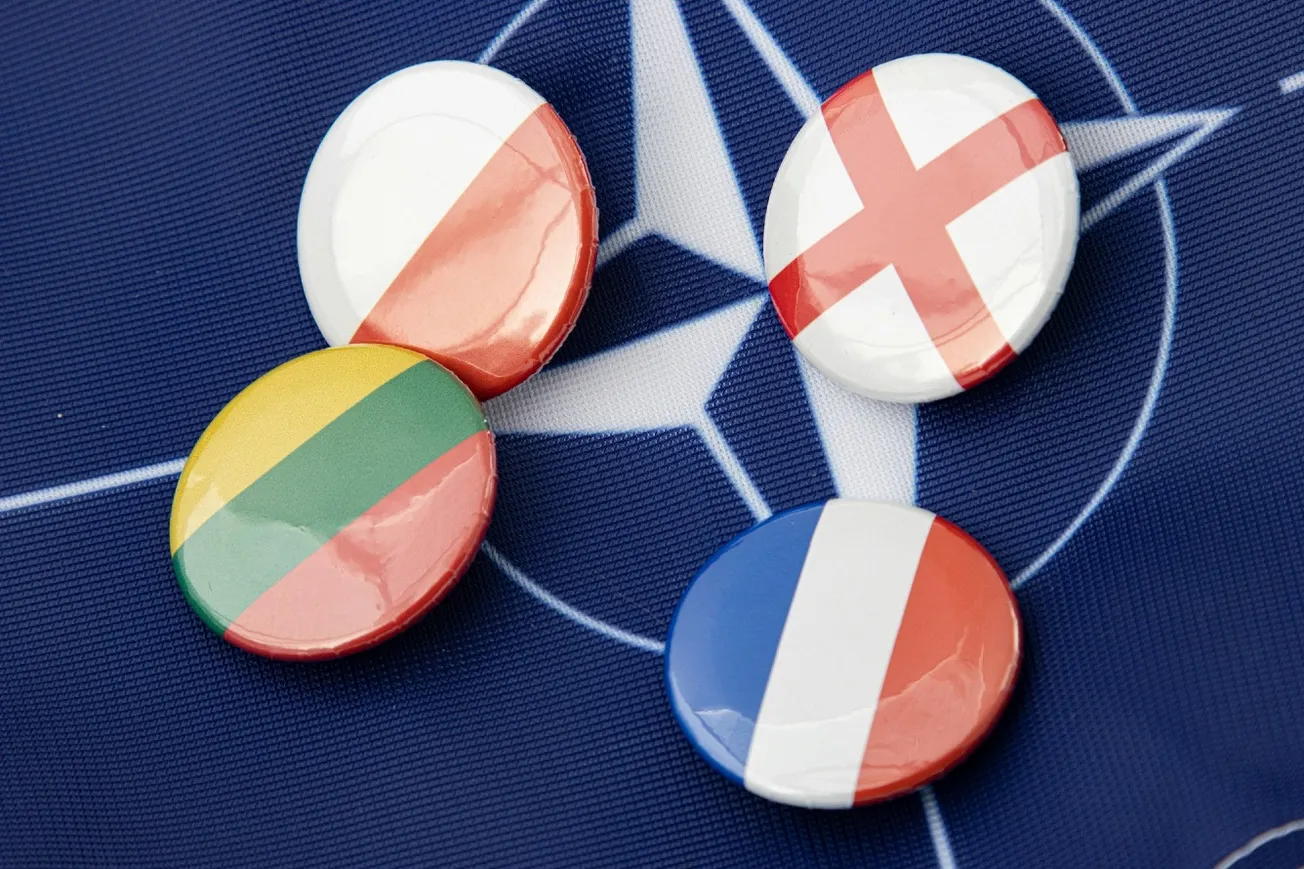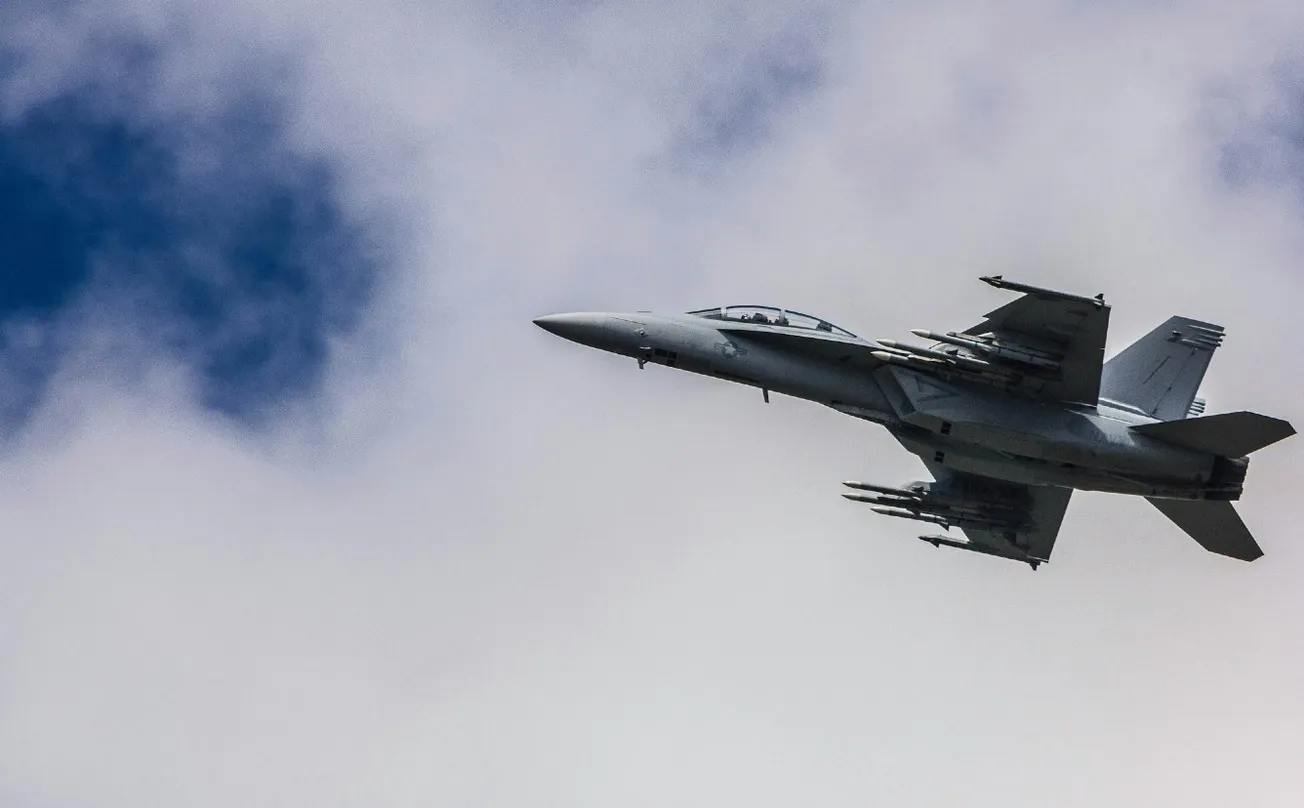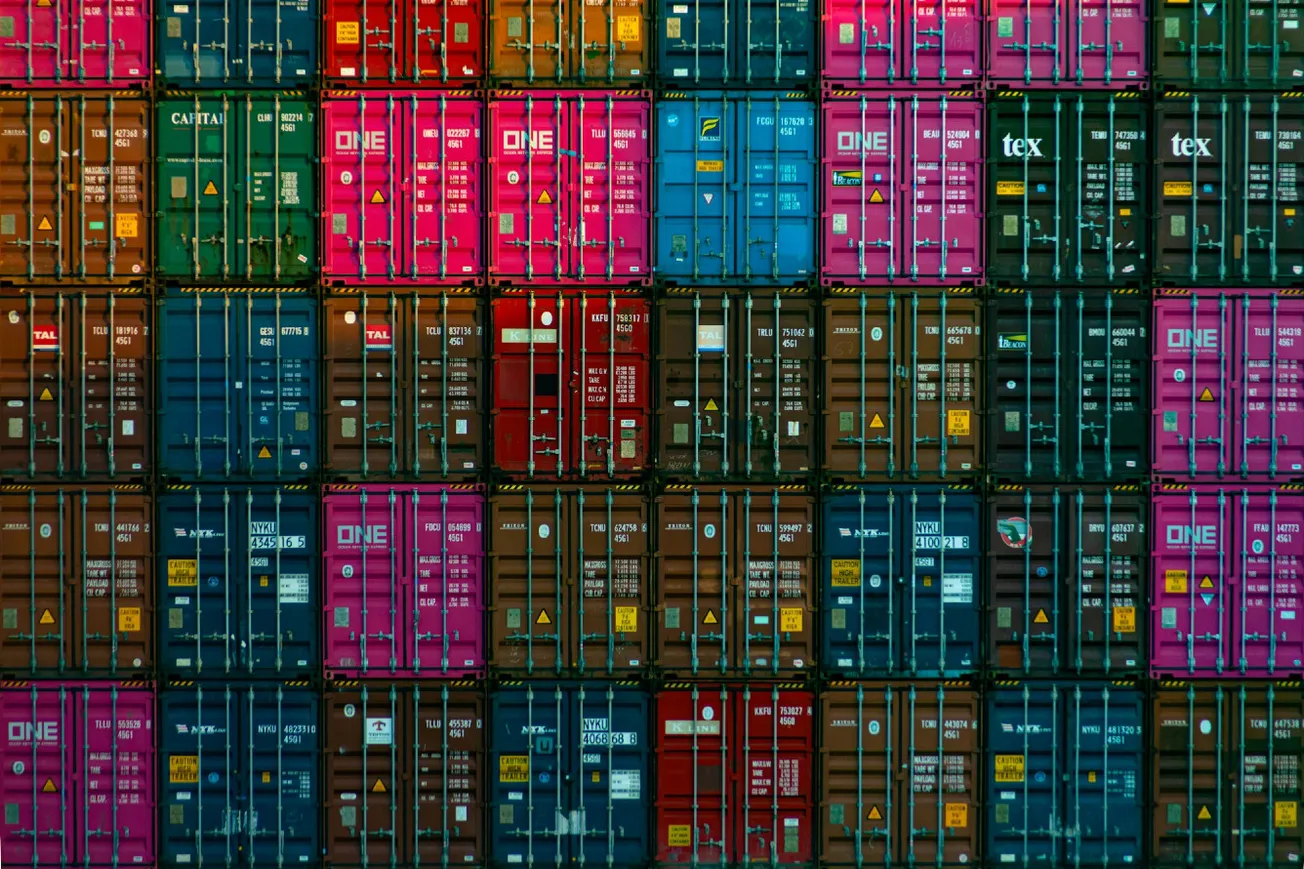Prime Minister Justin Trudeau of Canada, trolled by President-elect Trump as the governor of America's 51st state, announced that he would step down as the country's leader.
With his resignation, Trudeau joins a long list of Western leaders who have failed to retain the support of their nations' voters. President Joe Biden and Vice-President Kamala Harris lost to Trump in a landslide in November. In France, Emmanuel Macron and his party, La République En Marche! (LREM), suffered significant losses in the European Parliament election and subsequent national elections. In Germany, Olaf Scholz and his Social Democratic Party (SPD) faced substantial losses in the European Parliament elections, which led to a weakened position in Berlin. In the United Kingdom, Rishi Sunak led his Conservative Party to a historical electoral defeat in the 2024 general election, handing the government to Keir Starmer of the Labour Party.
Each of these leaders was a prominent supporter of the elitist, rules-based international order, including backing the ongoing war in Ukraine instead of pursuing peace negotiations with Russia.
Trudeau was, however, different from the above leaders in several ways. He was the longest-serving of them all, thrust into Canada's leadership nearly ten years ago, in 2015, at the young age of 43, when Obama was still America's president. Trudeau has always been an ultra-left liberal at heart, and this was evident in the way he governed the large country with a small population. He took his leanings from his father, Pierre Trudeau, one of the longest-serving Prime Ministers of Canada, serving from 1968 to 1979 and again from 1980 to 1984. Known for "Trudeaumania," the elder Trudeau was renowned for his progressive policies, including legalizing homosexuality in Canada when it was a taboo topic everywhere in the developed world.
Trudeau first came to international attention for his aggressive management of the pandemic. His government quickly acknowledged the severity of the situation, and Trudeau held almost daily press briefings in the early stages to communicate updates and advice. The Prime Minister was visible as a key spokesperson, encouraging Canadians to adhere to public health guidelines like social distancing, mask-wearing, and vaccination.
The Canadian government launched significant financial aid programs, including the Canada Emergency Response Benefit (CERB), which provided financial assistance to those who lost their jobs or income due to the pandemic. He offered various loans and grants to small businesses. Deficits soared, and the national debt increased significantly. Trudeau publicly attacked anyone who questioned his approach and painted his critics as Nazis, alienating large sections of his voters.
Trudeau invoked the Emergencies Act in response to the "Freedom Convoy" protests in 2022, which were against vaccine mandates and other restrictions, inviting the wrath of many Canadians. Truck drivers and supporters drove from British Columbia to Ottawa, protesting the federal vaccine mandate for cross-border truckers implemented on January 15, 2022. The protesters reached Ottawa and occupied major streets around Parliament Hill, blocking several key Canada-U.S. border crossings, most notably the Ambassador Bridge, one of North America's busiest trade routes, causing significant disruptions to international trade.
With the Emergencies Act, law enforcement agencies assumed extraordinary powers, including the authority to freeze the bank accounts of those involved in the blockades and order tow trucks to remove vehicles from the protest sites. By late February, the situation in Ottawa and at border crossings was largely resolved through police action, with hundreds arrested.
The convoy underscored deep divisions in Canadian society regarding government trust, individual freedoms, and the handling of public health crises. It left a lasting impact on how protests are managed, the use of emergency powers, and discussions around freedom of assembly versus public order. By the middle of 2022, Trudeau's popularity was sinking.
As inflation soared, the Bank of Canada had to increase interest rates in a play-by-play replay of what was happening in America. By mid-2023, polls indicated Trudeau's approval rating had fallen further. An Angus Reid survey showed his approval at 40%, with disapproval rates at 55%. The decline continued into 2024. An Ipsos poll reported only 28% of Canadians believed Trudeau deserved re-election. His approval ratings hit new lows, with some polls showing disapproval rates at 65% and approval at around 30%. Interestingly, these numbers closely mirrored the wrong-track numbers of President Biden.
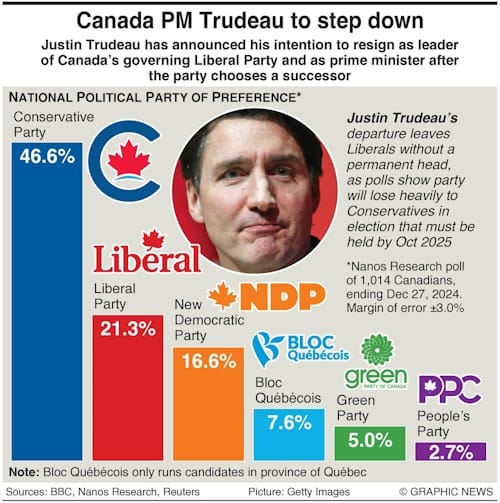
One factor that helped maintain Trudeau's popularity was his wife, Sophie Grégoire Trudeau, a well-known former television host and reporter who worked for networks like LCN and TVA in Quebec. When the couple married 18 years ago, they became cultural icons as they traveled the world promoting Canada and wearing traditional local attire. But in August 2023, the couple announced their separation with an agreement to raise their three children jointly. The separation isolated Trudeau even more.
Around the same time, Trudeau created a diplomatic impasse when he accused the Indian government of sending federal agents to kill a Khalistan sympathizer in Canada. The country is home to the second-largest Sikh community in the world, and the Khalistan separatist movement has, for decades, sought to secede from India. In October, the BBC noted that the relationship between the two former Commonwealth allies had hit rock bottom.
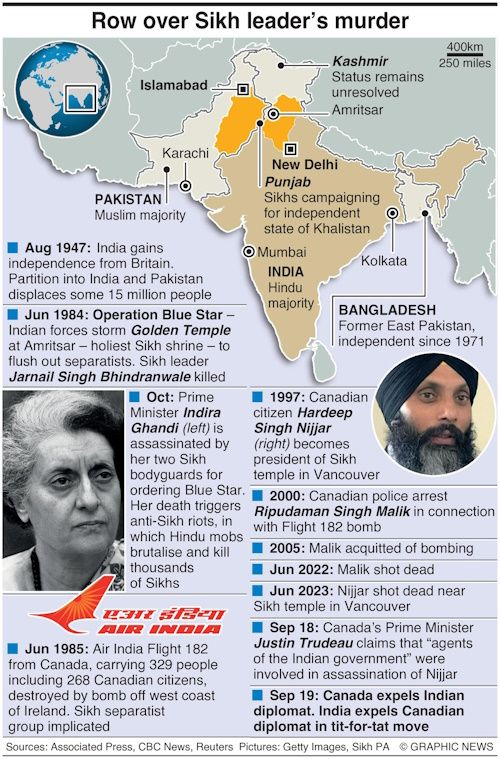
President-elect Trump takes office in two weeks and eagerly seeks Western leaders who share his vision to bring peace to numerous trouble spots, limit illegal immigration into the United States, and have a fair and balanced trading relationship. Trudeau, who had profound philosophical differences with Trump, was an unlikely partner in all these matters. The incoming Trump administration will closely watch the developments in Ottawa, hoping that a Trump-friendly leader will take over the reins.

